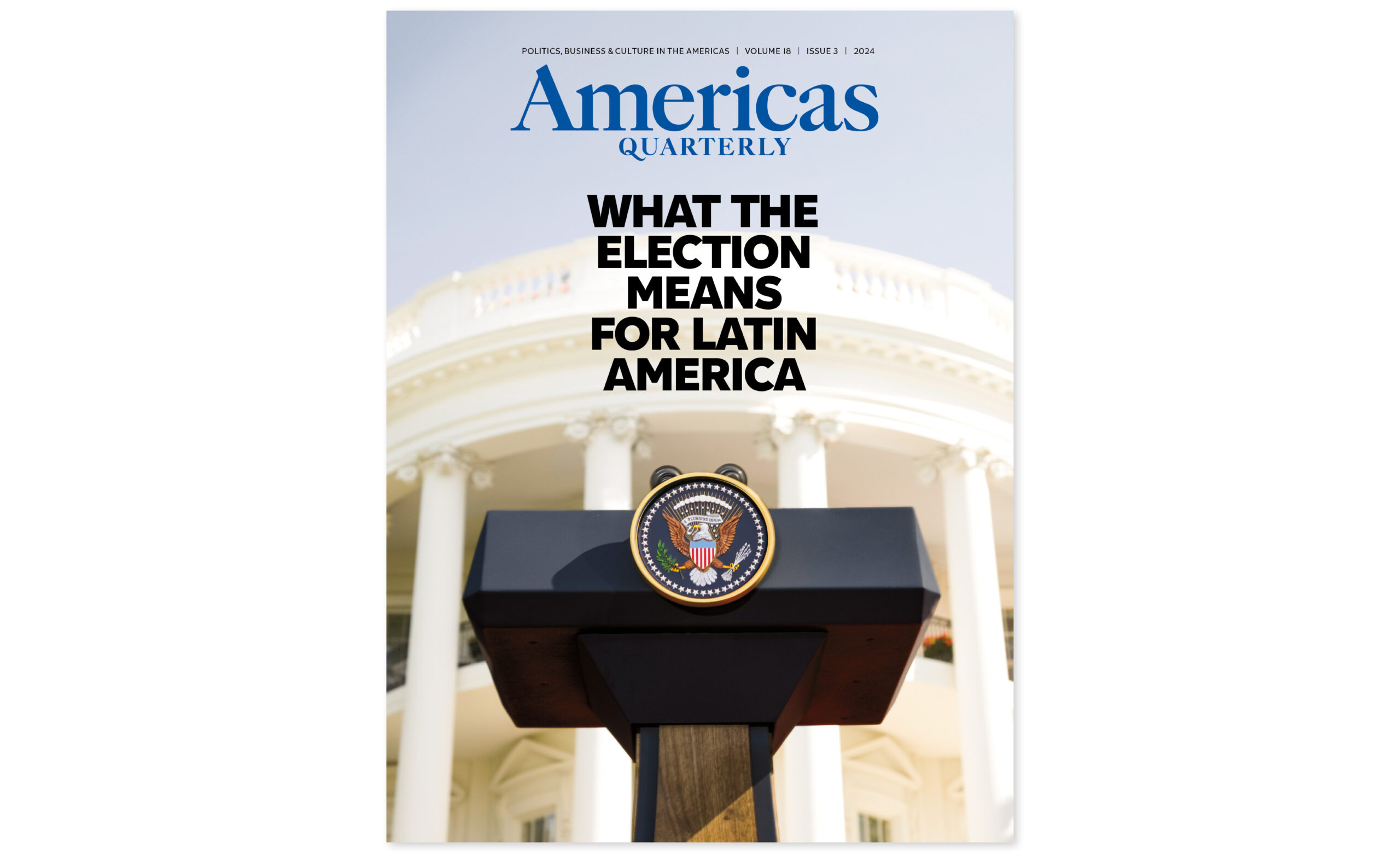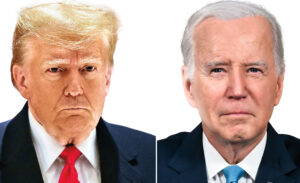This article is adapted from AQ’s special report on the 2024 U.S. presidential election and its impact on Latin America
It is a common lament that Washington does not pay enough attention to Latin America and the Caribbean. But in many ways, the region is front and center for the U.S. election happening on November 5.
Immigration, drug trafficking, nearshoring and infrastructure investment are all important issues in this election—and they all touch on Latin America. So for this issue, we asked former advisers to both President Joe Biden and former President Donald Trump to explain what another term for their onetime boss would mean for the region.
Their articles may surprise some readers. Mauricio Claver-Carone, the top White House official for Latin America under Trump, writes in his article of “the inextricable link between U.S. national security and mutual economic growth.” He is critical of the Biden administration for allegedly not focusing more on nearshoring opportunities in the Western Hemisphere, spelling out a vision that would pull countries closer while urging them not to do trade deals with China.
In the Biden-focused essay, former National Security Council officials Ricardo Zúniga and Nicholas Zimmerman write of how the incumbent has rebuilt the United States’ reputation in Latin America after the damage of the Trump years. They contend that Trump “empowered populists,” while Biden “actually defended democracy in Brazil and Guatemala against efforts to overturn the will of voters.”
Of course, it’s not just foreign policy issues that matter. An estimated 36 million Latino voters will be eligible to vote in November, up from 32 million in 2020. They will account for nearly 15% of the overall electorate, a record, at a time when some polls suggest this bloc is swinging toward Trump. It’s conceivable that people of Latin American descent will decide this election—and therefore what kind of U.S. policy toward the region prevails.










